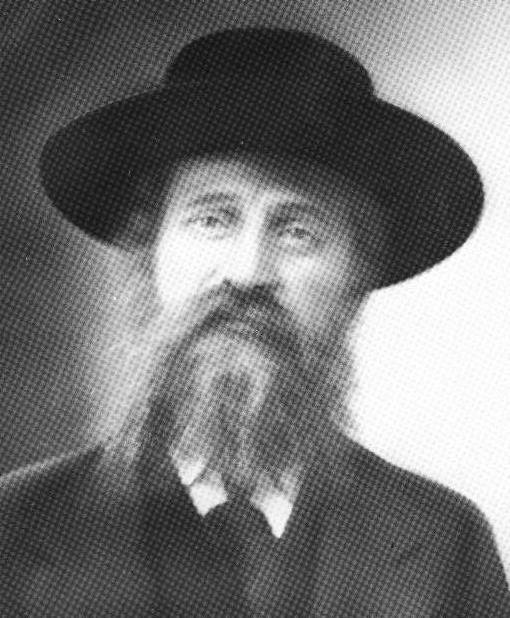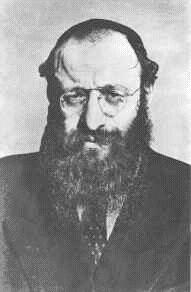Our History
Yeshiva of Nitra Rabbinical College established in Czechoslovakia in the Year 1907 continues to reflect the luminous personalities of its founders and their educational philosophy. Rabbi Samuel David Ungar, an esteemed member of an illustrious family of scholars, captivated the attention of countless Torah communities. Gifted students from distant towns and villages of all Eastern Europe flocked to his highly praised yeshiva.

Rabbi Samuel D Ungar
In the year 1931, the town of Nitra (Neutra) asked Rabbi Ungar to become its leader. The Rabbinate of Nitra was one of the most prestigious in Europe. After a decision rendered by a Rabbinical Court, the Rav accepted the position. Despite the heartfelt pleas of the Tirnau congregation, which was reluctant to part with their beloved Rav.
This move was partly based on a strong feeling of intuition. As the Rav’s distinguished disciple and son-in-law, Rabbi Michael B. Weissmandl hero of the book, The Unheeded Cry, related, the Rav told him at the time, “My heart tells me that there will come a time when the only remaining yeshiva on the continent will be in Nitra. That is where I wish to be…”
These words indeed proved to be sadly prophetic. The yeshiva in Nitra was to become the last bastion of Torah to function on the European continent. Incredibly, even as the soil of Europe was drenched with Jewish blood and its skies filled with smoke rising from the crematoria, the doors of the Nitra Yeshiva remained open until early 1945.
If it is true that a Yeshiva bears the stamp of its founders and leaders, then the name Michael Ber Weissmandl is also indelibly impressed on the Nitra Yeshiva and its mission. Rabbi Weissmandl played a stellar role not only as a postwar Torah pioneer who braved many obstacles to establish the Yeshiva in this country, but also as a genuine hero of the Holocaust years.
As the Nazi machine implemented its brutal course of actions, one lone voice rang out demanding attention to the unspeakable challenge of genocide. His letters to the outside world, demanding attention to the plight of European Jewry, described in unremitting detail the suffering and destruction of the holocaust, confronted the nations of the world with a moral challenge they failed to meet.
Many hundreds of individuals were saved from certain death through his valiant work. From the very beginning of the systematic deportations it was Rabbi Weissmandl who organized underground bunkers and shelters. Under constant peril of deportation and death, daily lectures were delivered until just a few months before the end of the war.
Then it all ended suddenly and tragically. The Yeshiva was discovered and forced to disperse. The elderly Rabbi Ungar fled to the woods of Banska Bystrica and perished there on the 9th day of Adar 5705.
In the post-war literature dealing with the fate of European Jewry, the name Weissmandl appears again and again. Impressive testimony to Rabbi Weissmandl’s personality and exceptional role is contained in Oscar Newmann’s book “ Im Schatten des Todes” (“Olamenu”, Tel Aviv, 1956).
Rabbi Weissmandl described his personal experiences in his book “Min Hameitzar,” (New York, 1965) which the Yeshiva published posthumously. It contains a wealth of letters and documents which by themselves tell the story of how the Jews of Slovakia perished. Nothing written during that time is comparable to this material in impact and emotional depth as well as a source of authentic information.
Rabbi Weissmandl survived the war. In order to salvage the pitiful remnant of European Torah Jewry which remained, immediate action was called for. He did what his eminently Jewish instinct almost automatically compelled him to do – he grasped Torah – and built a Yeshiva
Rabbi Weissmandl re-established the Yeshiva in the United States with approximately 80 young men gathered from various hiding places and concentration camps, whose parents and families had perished during the war. They settled in Somerville, New Jersey.
For technical and economic reasons, the stay in Somerville could be only temporary. In 1948, the Yeshiva purchased the Brewster Estate in Mount Kisco, New York, which consisted of several buildings and 300 acres of farmland.
After seven decades in the USA, we are pleased of our share in carrying out the teachings of our illustrious founders, and having successfully fulfilled the role of one of the pioneering institutions establishing rigorous Torah study in the United States.


